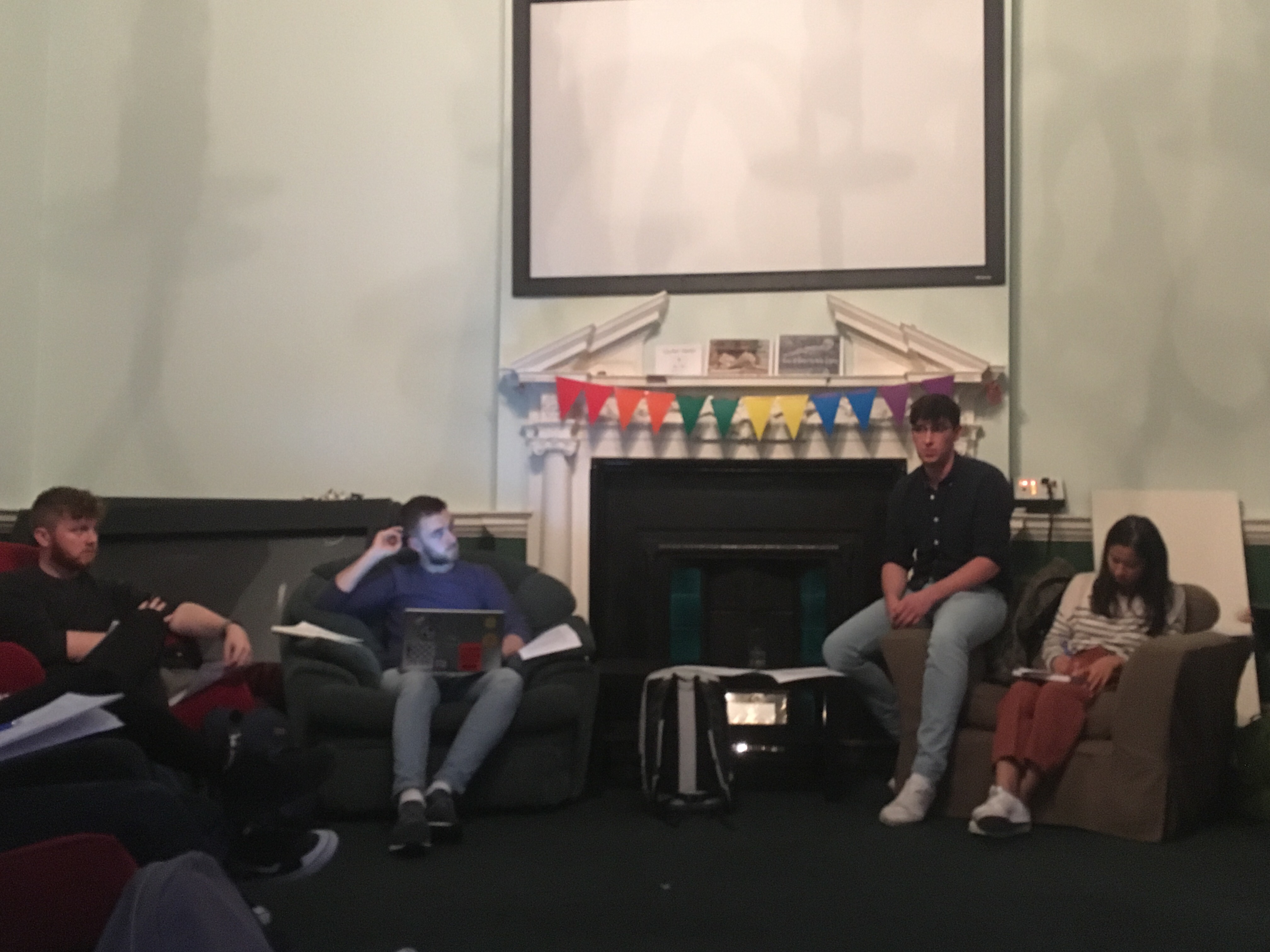Working groups were established at the first meeting of the new TCD PhD Workers Rights Group tonight, along with loose plans to create a petition and gain the Graduates Students’ Union’s (GSU) official support.
Among the group’s central aims are the recognition of PhD students as workers with contracts and full employee and collective bargaining rights, an end to unpaid teaching, and PhD stipends based on the living wage.
“Our most clear demand is the Dublin living wage,” said research assistant and co-founder of the group Conchúir Ó Ráidigh. The approximately 15 attendees read through the group’s provisional demands and agreed to establish a petition based on their demands at the group’s second meeting.
Ó Ráidigh emphasised that “the real focus [of the campaign] should be the State”, as there is “a tremendous amount of variation in our issues but the thing that connects us together is funding”.
GSU Vice President Gisele Scanlon was present at the meeting and expressed support for an increased stipend. She said that GSU President Shaz Oye and herself ran on a ticket of “the PhD stipend has to be improved”.
Attendees shared their experiences with inadequate facilities, stipends and accommodation. The lack of consistency between departments with regards to PhDs was a major issue highlighted by the discussion. “Even within the same research group you can have someone on a €16,000 stipend, another person on €18,000,” one attendee contributed.
“We feel that workers rights is the only solution to the situation we’re in,” said Thomas Dineen, the other founder of the group, stating that in several European countries, PhD students are recognised as workers.
Members of a similar group in University College Dublin (UCD) shared their experience establishing their campaign. One member argued: “Our core business [as PhDs] is to teach and produce research, so to say that we’re not workers is bullshit.” The representative said that major differences between the conditions faced by PhDs between and within faculties was also prominent in UCD.
The group’s representatives emphasised raising awareness of the issues PhD students face and the campaigns demands, and gaining allies among college staff.
One attendee argued that PhD students are not paid for their preparation for tutorials or looking at undergraduate assessments. The lack of accommodations made for student parents, unavailability of on-campus accommodation during the summer and inadequate facilities were also raised as issues faced by Trinity PhD students.
The group plans on meeting again in the next month. The group’s founders are also approaching trade unions SIPTU and IFUT.






